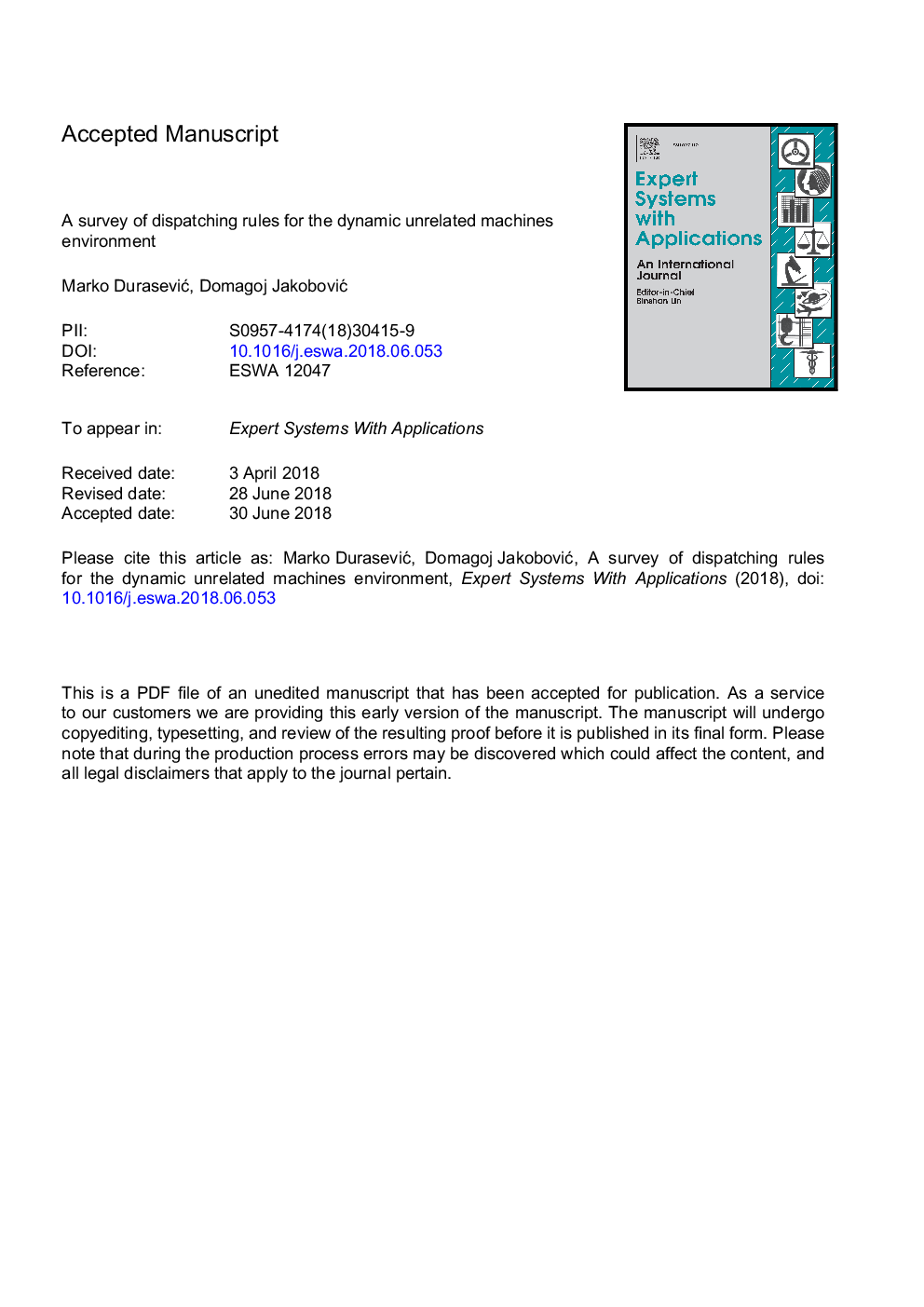| Article ID | Journal | Published Year | Pages | File Type |
|---|---|---|---|---|
| 6854727 | Expert Systems with Applications | 2018 | 51 Pages |
Abstract
In the real world, scheduling is usually performed under dynamic conditions, which means that it is not known when new jobs will be released into the system. Therefore, the procedure which is used to create the schedule must be able to adapt to the changing conditions during the execution of the system. In dynamic conditions, dispatching rules are one of the most commonly used methods for creating the schedules. Throughout the years, various dispatching rules were defined for a wide range of scheduling criteria. However, in most cases when a new dispatching rule is proposed, it is usually tested on only one or two scheduling criteria, and compared with only a few other dispatching rules. Furthermore, there are also no recent studies which compare all the different dispatching rules with each other. Therefore, it is difficult to determine how certain dispatching rules perform on different scheduling criteria and problem types. The objective of this study was to collect a large number of dispatching rules from the literature for the unrelated machines environment, and test them on nine scheduling criteria and four problem types with various machine and job heterogeneities. For each of the tested dispatching rules it will be outlined in which situations it achieves the best results, as well as which dispatching rules are best suited for solving each of the tested scheduling criteria.
Related Topics
Physical Sciences and Engineering
Computer Science
Artificial Intelligence
Authors
Marko ÃuraseviÄ, Domagoj JakoboviÄ,
